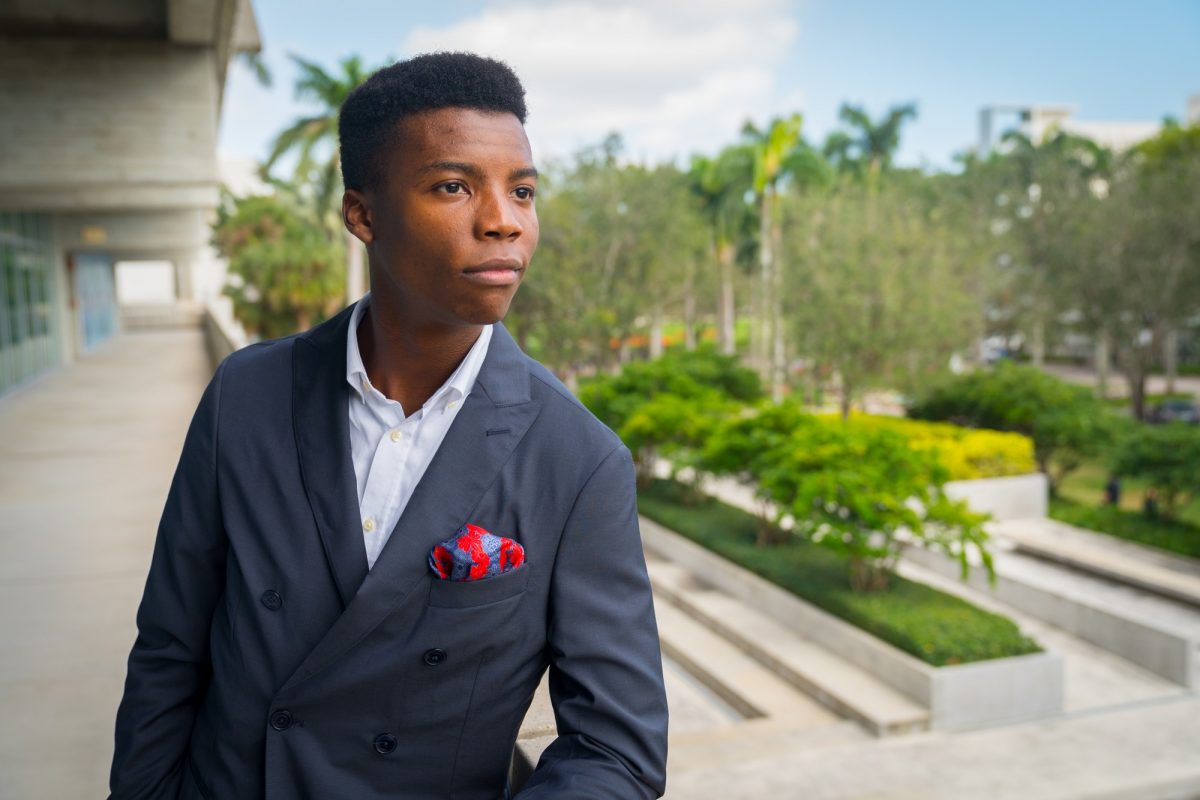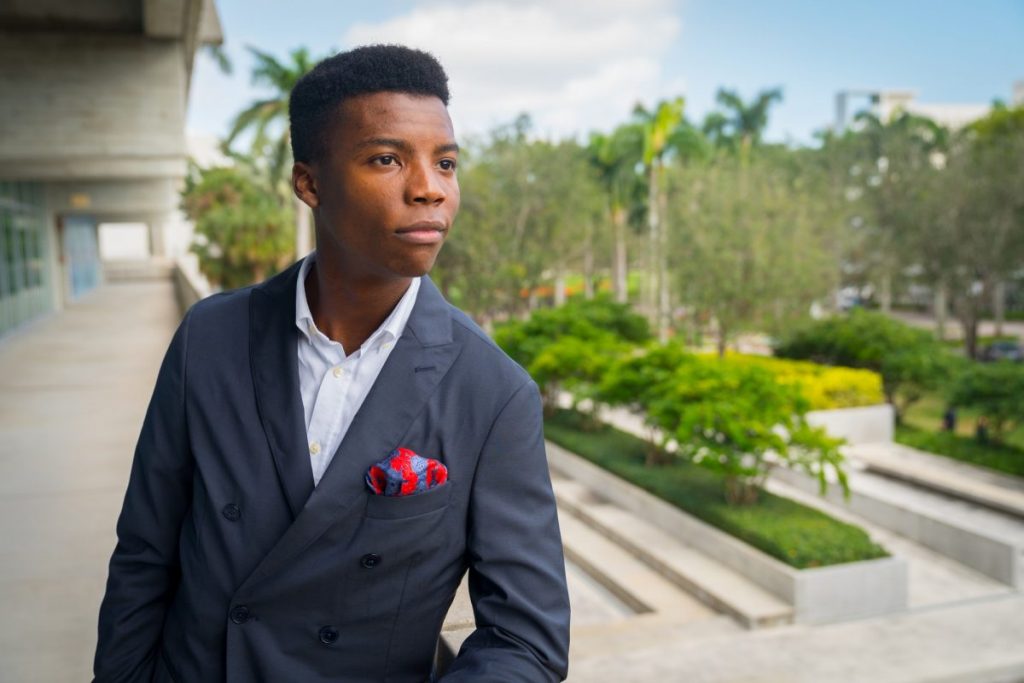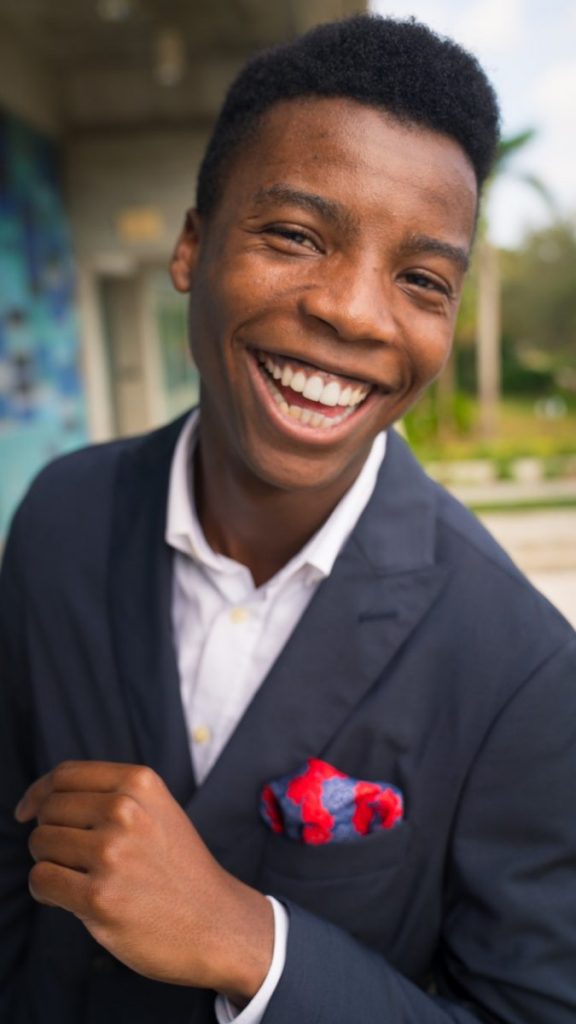

Greek Life was not high on Tumi Lengoasa’s list of priorities when he started at the University of Miami in 2015. Even up until Rush Week, Lengoasa said he was ambivalent about becoming a brother. Then he found Alpha Sigma Phi.
“I can be myself,” junior Lengoasa said. “We can talk about anything and everything under the sun, from the most intelligent conversation to, like, ‘Did you see that car last week?’”
That was important to him, as someone who said thinking is one of his favorite hobbies. And when Lengoasa thinks, he thinks big.
He is actively working on harnessing solar power in his homeland of South Africa to replace the worn-out power grid that is still fragmented from the days of apartheid. Lengoasa balances fraternity life, work at the School of Business’ IT desk and his computer science major with reading South African policy documents, making business phone calls and looking for land to buy.
After he reworks the power grid (with Lengoasa, it’s a question of when, not if), he wants to create a network of solar-powered high speed trains to ensure South Africa is the next world superpower. He calls Elon Musk, a fellow South African, one of his role models because of his ability “to use technology to solve a pressing problem and make it look sexy.”
“The next Google, Alibaba … Isn’t supposed to come from the U.S.,” Lengoasa said. “Twenty years from now, that company is coming from Africa.”
It’s just a matter of providing Africans with the same resources, education and access as people on other continents. Lengoasa was “very fortunate” to receive a top-notch education and travel extensively with his family. His father worked for the United Nations, so his family lived in Geneva, Switzerland, for a while, too. Lengoasa speaks fluent French and has cross-cultural competency to find common ground with students from all over the globe. He was in Student Government Senate and once ran for Speaker before he decided to leave SG to focus on his longterm projects.
Being the guy who agrees to everything, however, took a toll on Lengoasa during his sophomore year. He said he was so overcommitted and overworked that he sunk into a depression.
“Eventually, it got so bad that I was closing myself off from people,” he said. “I didn’t want to go anywhere. I didn’t want to do anything. I didn’t want to go to classes. When I left Miami in May, I was running.”
But as soon as he got home to South Africa, having stripped the pressure to achieve and to “just keep going, just keep pushing,” he was able to return to himself and that’s when “the reset” happened.
Lengoasa turned 21 that summer and decided to change his perspective. He began focusing on the long term. He developed a strategy for deciding what to include in and omit from his list of to-dos.

“I’ve left things that I may have loved but that weren’t contributing to my longterm growth, not in the direction that I was looking at,” he said.
He also accepted that he could never box himself into one category. When people ask him what he wants to do for a living, he may simplify it to, “I want to build companies for a living,” because he doesn’t want to scare people, he said. He compared himself to a popular meme of Charlie Day with dark bags under his eyes, signaling to a wall of papers connected by red string, like in criminal investigations.
Yet the true picture of Lengoasa’s goals is much more complex and impressive. He wants to be an innovator, a computer scientist, an entrepreneur – even a musician. His band of UM students, FirexSquad, performed as an opening act at last year’s Homecoming concert. And Lengoasa just dropped his first solo album on Jan. 25 under his stage name, Naim Iorden, which means “smooth flows,” he said.
The 10-song record tells part of the story of Lengoasa’s painful experience with depression. The last song, “You Don’t Know,” was written as a direct message for his friends and acquaintances who were unaware of his struggles during the spring of his sophomore year. And the whole album is an exploration of Lengoasa’s long history with the craft of music making.
“It’s my ode to music, it’s my ‘F**k you’ to music, it’s everything in between,” he said.
It seems Lengoasa’s list of goals and projects is never-ending, and it’s evident in the “pages and pages and pages” of notes and ideas he keeps stored in his cell phone. He is an idea guy, but that does nothing, he said, without implementation. So he is working to create what he won’t call an empire.
“It’s a word I’ve used a lot as a kid, but I realized the word ‘empire’ doesn’t align with my values in some sense just because, I suppose, being the product of a post-colonial country,” he said.
Ultimately, he wants his legacy to be the people whose lives he improves.
“All the things I do in all the projects I want to do – solar energy, for example, energy in general, mass transportation, individual transportation, all these technologies – it’s about impacting people’s lives positively,” he said.
And although he least expected it, being a fraternity brother helped him believe in the power of pooling resources, rallying behind a goal and being able to accomplish it.
Even so, he recognized the challenges the Greek system faces, saying we may be living in the last generation of fraternities as they currently exist and operate.
“Nothing is perfect, and certain people have been allowed to get away with things that no one should,” he said. “But in all of that, we should not overlook the positive aspects, the growth, the ability to learn together and grow together and make connections and do something good in the world.”





